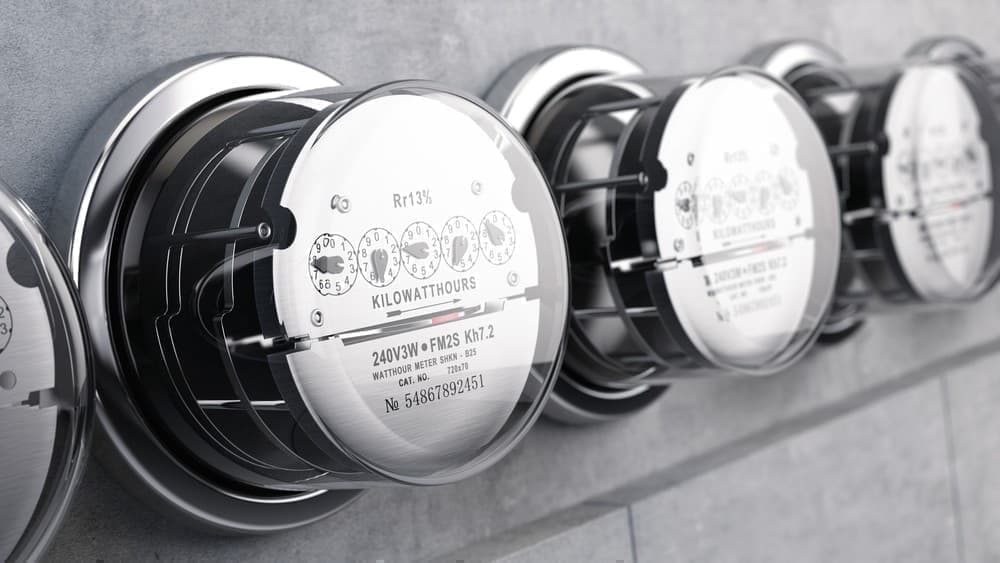
Trade Association Energy UK – which represents over 100 members – has described record wholesale gas and power prices as a “market-wide crisis” and has criticized chancellor Rishi Sunak for the lack of a clear plan to protect the industry. Speaking to The Financial Times, chief executive Emma Pinchbeck said: “Other treasuries in Europe have already responded to the crisis, but in the UK, the energy sector is still asking if the chancellor knows that energy bills going up by over 50 percent in the new year is a problem for ordinary people, businesses, and the economy.”
Pinchbeck was not alone in her criticism this week, with EDF Energy – the fourth-biggest supplier in the UK – warning the situation was now “critical” as it urged the government to “act now to support energy customers.”
Meanwhile, Good Energy’s shares dropped four percent amid profit warnings, with the supplier downgrading its expected earnings by £3m due to soaring wholesale prices and sustained market volatility.
In a trading update to the London Stock Exchange, Nigel Pocklington, chief executive of the energy supplier described the situation as a “national crisis” and warned that “no one in the industry is immune.”
He said: “We urge the UK government to support the industry at large in navigating these short-term challenges to protect bill-payers and those that serve them
Pocklington attributed the “unparalleled” price hikes to post-lockdown demand, supply and storage shortages, cold winter weather, and escalating geopolitical tensions between Russia and Europe, with the Nord Stream 2 pipeline still waiting to be certified.
The energy firm outlined that power and gas prices on a day-ahead basis for December compared to November have been on average 36 percent and 35 percent more expensive respectively, at £256 per megawatt-hour and £2.71 per therm.
This is in line with Bulb Energy’s statements following its de-facto nationalization through the special administration process, which revealed it was costing them £4 per therm to supply energy to their 1.7m customers, while the current consumer price cap prevented them from charging customers more than 70p per therm.
So far, 25 UK energy firms have ceased trading in the past three months, affecting four million domestic consumers.
Ofgem announces new funds for suppliers as regulator seeks to reform energy industry
Market regulator Ofgem announced yesterday it will provide £1.83bn to suppliers that took on customers from collapsed rivals through the supplier of last resort process.
The funds will compensate suppliers hit by escalating onboarding costs, and to ensure households are not left in the lurch this winter if further suppliers collapse.
However, these costs will eventually be felt by consumers – and support Investec’s recent analysis that UK households will suffer a £3.2bn collective bill this winter when combining the onboarding costs with the sums required to prop up Bulb through the winter until a new buyer can be found.
When asked for comment, the market regulator said: “Ofgem’s safety net has protected more than four million customers through the unprecedented global gas prices this year, making sure they have an energy supplier and household credit balances are honored. This comes at a cost, which we always seek to minimize. As we announced last week, we’re also stabilizing the retail market with robust stress tests for all suppliers.”
Ofgem has also announced proposals for stringent financial stress tests to ensure energy firms hedge against market shocks in the future.
It is also currently engaged in an industry consultation on the consumer price cap after industry bosses including Scottish Power CEO Keith Anderson have called for the mechanism to be reformed – with findings expected early next year.
Chief executive Jonathan Brearley told BBC’s Today Programme that consumers should expect the price cap to rise again next April, following the 12 percent hike in October.
He argued it was reasonable for the cap to reflect current market conditions with surging gas prices.
Brearley said: “The price cap has done a good job for consumers…but where you have legitimate price increases, those costs have to be passed on to consumers.”
Pantheon forecasts the price cap could increase by as much as 40 percent next Spring, while Investec predicts prices could rise by over 50 percent and reach £2,000 per year for average use.
According to The Times, UK ministers are considering a number of potential options targeted at households to mitigate the impact of the huge jump in bills.
This includes finding ways of spreading the price rises over a longer period, possible cut in the five percent value-added tax rate on energy bills; and an expansion of the Warm Homes Discount scheme, which supports 2.7m vulnerable households.
Meanwhile, Ofgem has not escaped criticism with Citizens Advice earlier this month accusing them of a “catalogue of errors” and for failing to proactively manage the industry, allowing unfit suppliers to stay in the market.
In response to the criticism, Ofgem told City A.M. it accepted “the energy market needs reform and quickly” as the “current system was not designed for this sort of extreme market event”.
The market regulator explained its “top priority” is protecting consumers and that it understands the challenges households and businesses are facing in light of the unprecedented increase in global gas prices.





























